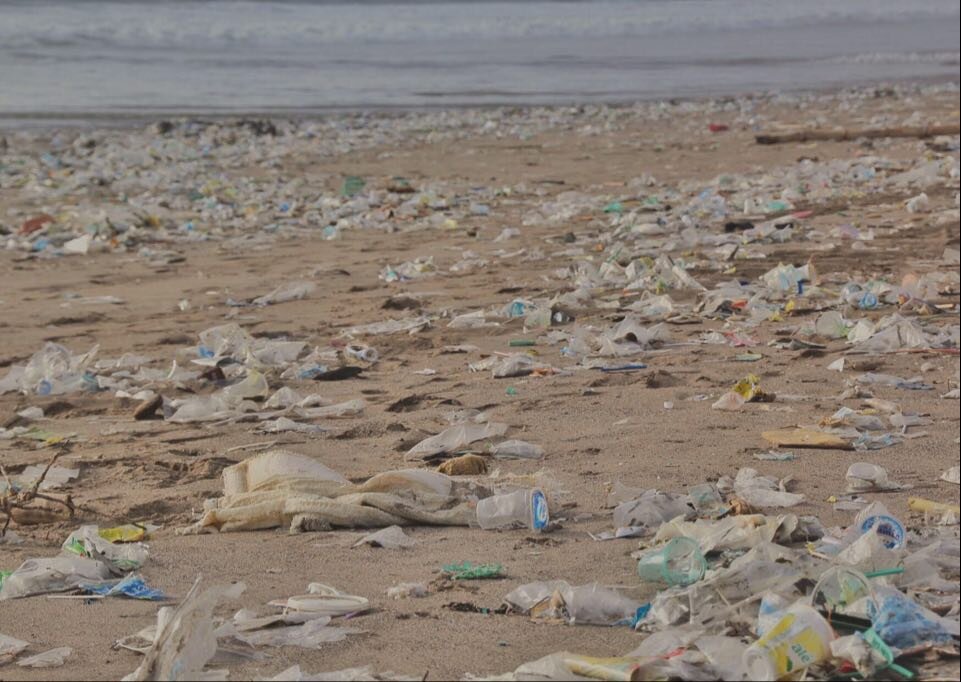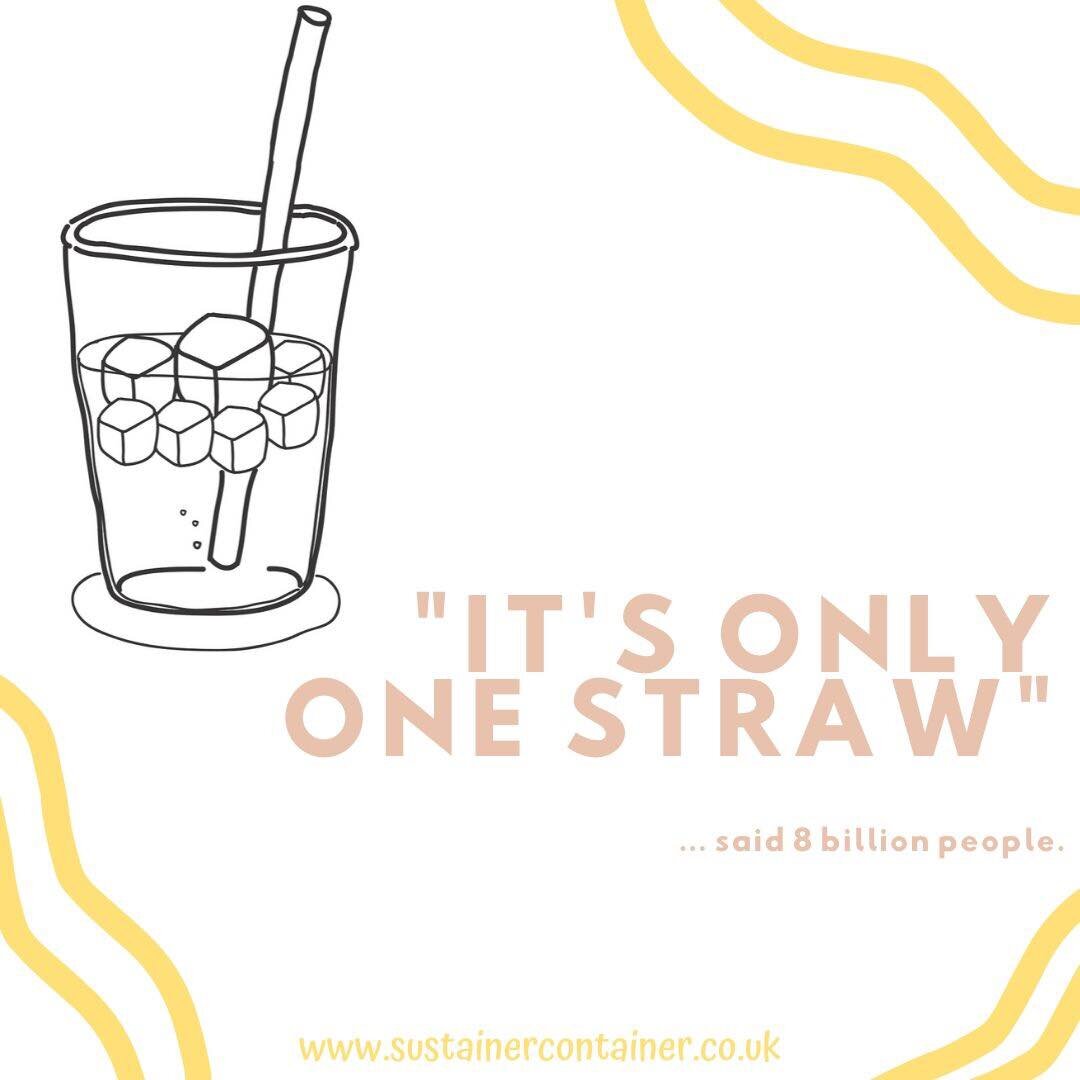Plastic Free Living Tips
Today’s blog post is written in collaboration with Maya Vertigans from Sustainer Container, an ethical business which provides eco friendly gifts and sustainable starter kits!
By 2050 there could be more plastic in the sea than fish! I found this statistic absolutely heartbreaking and this plastic problem prompted me to start my own eco friendly products business - Sustainer Container. My business collates eco friendly products into sets, with the packs being available for less than it would cost to buy the products individually - saving you money!
Here is a round up of my top tips for plastic free living:
Buying plastic free
Recycling
Go litter picking
Easy plastic free swaps
Before looking at my top tips for plastic free living, I first wanted to address the problem with plastic. We all know that single-use plastic is a problem, but tend not to delve too deeply into discovering why plastic is such an issue and why recycling isn’t always the answer, so this is something I consider below:
The Problem with Plastic
In recent years, climate change has been brought to the forefront and many of us are more aware of how our day to day actions impact the environment. We diligently turn off our lights when we leave a room and turn plugs off at the wall when not in use and we try to take public transport or walk/ cycle where possible. But, another major threat to the environment which has gained publicity recently is plastic. Plastic is not biodegradable and it can take plastic up to 1000 years to decompose and even then, it may not fully decompose. Adding to the problem is the fact that 40% of plastic that is produced is single-use and often cannot be recycled. These items will be used one single time but can remain on the planet for centuries!
Shockingly, 8 million tonnes of plastic enters the ocean every year and once in the ocean the plastic travels around the world, which poses huge problems for marine life, with 1 in 3 turtles having eaten plastic! When sea creatures ingest plastic, they cannot digest the man-made material so the plastic sits in their stomach causing them to feel full and they can die of either starvation or due to the plastic rupturing their gut. But, it’s not just sea creatures that are affected by the plastic problem, with large mammals including elephants and tigers also being found to have consumed plastics which can in some cases result in death.
Plastic free living tips - how can you help?
Buying Plastic Free
The first plastic free living tip is to buy plastic free items where possible - this is the best step you can take to fight the plastic problem. Supermarkets tend to only have a small range of plastic free fruit and vegetables, but this is improving and the plastic free options can often be cheaper or the same price as plastic wrapped items! It can be harder to find other store cupboard staples such as pasta and rice plastic free, but consider visiting a refillery (take your own tub and refill for a plastic free shopping experience) each month to stock up on items you are unable to find at the supermarket.
Recycling
Shockingly, of the plastic produced since 1950, just 6% has been recycled!! Plastic also degrades each time it is recycled, meaning it cannot be recycled over and over (unlike glass and metal) and recycled plastic often needs to be combined with new plastic to create a high quality product. Due to the lower quality of recycled plastic, it can be cheaper to create products using new rather than recycled plastics.
Despite the problems with recycling that I have addressed above, if it is not possible to buy plastic free items, recycling is another top plastic free living tip - make sure plastic products you do buy can be recycled. As a general rule, thin plastics such as cling film, the film that covers tubs such as grapes and meat are not recyclable (although the tubs usually are recyclable). If plastic free products are not available, try to buy products that come packaged in hard, solid plastic which can be recycled. The plastic also needs to be clean and recycled correctly, for example plastic bottles should be recycled without their lid (which should go into general waste). However, black plastic cannot always be detected by machines which sort the recycling, meaning in some areas black plastic should not be recycled. A recent blog post I wrote for Recycle Week 2020 contains more information on how to find out what can be recycled in your area, as well as information about the different recycling symbols and also a fun project to recycle old greetings cards.
Go Litter Picking
Pick up litter you see lying around and put it in the bin, particularly at the beach or along rivers. Once the plastic enters the ocean and breaks down into micro plastics which can be consumed by sea creatures, it is extremely difficult to remove these particles so removing plastics before they enter waterways is crucial.
Easy Plastic Free Swaps
To further reduce the plastic you use, another of my top plastic free living tips is to make easy plastic free swaps. Some of the easiest plastic free swaps are toiletries and bathroom products, including swapping from bottle to bars of soap. Search for soap bars with recyclable cardboard packaging and swap out your single use plastic soap bottle. Top tip - get a soap rack or soap saver bag (put your soap inside and hang to allow the soap to dry, the soap can also be used inside the bag which will exfoliate your skin as you wash yourself in the shower) to make your soap bar last longer. This easy plastic free swap can be taken further by also swapping out your shampoo and conditioner for bars instead of bottles. To make this plastic free swap even easier, I have put together a Vegan and Cruelty Free Toiletries Set - all of your plastic free toiletries in one place. The kit includes a soap bar, shampoo bar, conditioner bar, a face moisturiser bar and a soap saver and is available for less than it would cost you to buy the products individually, saving you money!
For more information about my eco friendly product business and to shop sustainable starter kits visit www.sustainercontainer.co.uk
References and links to my website (if you could include these that would be fab). They are in chronological order - let me know if it doesn’t make sense.
More plastic in sea than fish:
https://www.independent.co.uk/environment/ocean-plastic-fish-climate-crisis-sea-study-a9635241.html
Sustainer Container:
Plastic takes 1000 years to decompose stat: https://www.thebalancesmb.com/how-long-does-it-take-garbage-to-decompose-2878033
The Problem with plastic Paragraph 1, all other plastic statistics:
https://www.bbc.co.uk/newsround/42810179
6% Plastic recycled reference:
https://3dinsider.com/plastic-recycling-challenges/
Black plastic reference:
https://www.recyclenow.com/what-to-do-with/black-plastic
Recycle week 2020 reference:
https://sustainercontainer.co.uk/blogs/sustainer-container/recycle-week-2020
Micro plastics reference:
https://www.nationalgeographic.com/environment/habitats/plastic-pollution/





